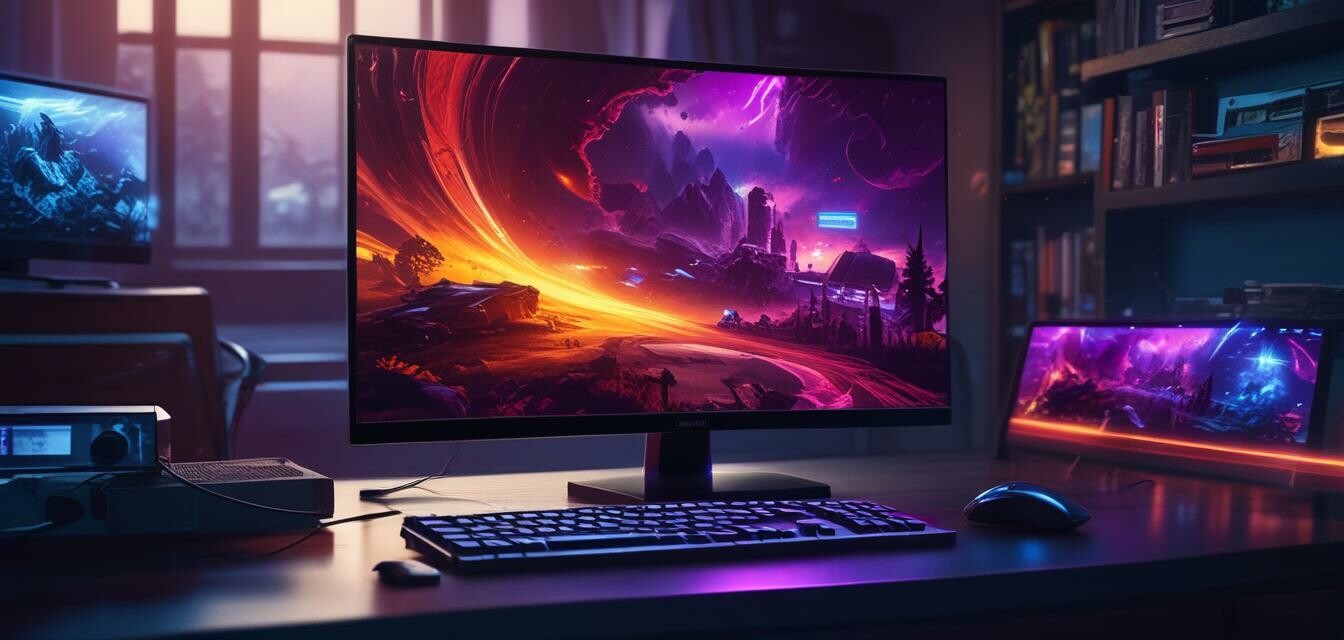
Choosing the Right Size: How to Pick an OLED Gaming Monitor
Key Takeaways
- Screen size significantly impacts gaming experience.
- Consider your gaming environment: distance from screen, room size, and seating arrangement.
- Common OLED monitor sizes range from 24 inches to 55 inches.
- Aspect ratios and resolutions can affect the perceived size of the monitor.
- Compare options before making a decision to ensure the right fit for your setup.
Choosing the right size for your OLED gaming monitor can greatly enhance your gaming experience. The size you select depends on various factors including your gaming environment, the types of games you play, and your personal preferences. In this buying guide, we’ll provide insights and tips on how to find the perfect size for your OLED gaming monitor. Let's dive into the details!
Understanding screen sizes
OLED gaming monitors come in various sizes, and understanding these sizes will help you make an informed decision. Here's a breakdown of common screen sizes and their ideal use cases:
| Screen Size | Ideal Distance (in feet) | Best For |
|---|---|---|
| 24 - 27 inches | 2 - 3 feet | Desktop setups, competitive gaming |
| 32 - 40 inches | 3 - 5 feet | Casual gaming, console gaming |
| 42 - 55 inches | 5 - 8 feet | Home theater setups, immersive gaming |
Factors to consider when choosing size
1. Your gaming environment
Consider where you will be gaming. The distance between your eyes and the screen plays a vital role in your experience. Here are some tips:
- For smaller spaces, a 24-27 inch monitor works best to maximize your gaming setup without overcrowding.
- If your room is larger, you may opt for a 32 inch or larger monitor for an immersive experience.
2. Type of games you play
Different types of games may require different monitor sizes:
- Fast-paced competitive games benefit from smaller screens where every detail is clear.
- Exploration or cinematic games are more enjoyable on larger screens that enhance the visual experience.
3. Your seating arrangement
Your seating position can influence how large or small the monitor seems. If you usually sit close to the screen, a smaller monitor might suffice, while those who sit further away should consider larger options.
Aspect ratios and resolutions
The aspect ratio and resolution also play a significant role in how the screen size is perceived:
| Aspect Ratio | Description | Common Resolutions |
|---|---|---|
| 16:9 | Standard ratio for most monitors. | 1920 x 1080, 3840 x 2160 |
| 21:9 | Ultrawide ratio ideal for immersive experiences. | 2560 x 1080, 3440 x 1440 |
| 32:9 | Super ultrawide for maximum field of view. | 3840 x 1080 |
Comparing monitor options
To make the best decision for your gaming setup, it's helpful to compare your options. Consider visiting our 4K OLED Gaming Monitors page for high-resolution options that deliver stunning visuals. If you’re on a budget, check our Budget-Friendly OLED Gaming Monitors to find affordable choices without compromising too much on quality.
Pros
- Enhanced colors and contrast with OLED technology.
- Higher refresh rates available for competitive gaming.
- Variety of sizes to suit different gaming setups.
Cons
- Some OLED monitors can be quite expensive.
- Risk of burn-in with static images.
- Limited availability in larger sizes.
Final thoughts
In summary, the right size for your OLED gaming monitor greatly depends on your gaming environment, seating arrangement, and the types of games you enjoy. While a larger screen can provide an immersive experience, it’s essential to consider how you will use it. Make sure to explore options available on our site, including Curved OLED Gaming Monitors for a unique viewing experience, or Portable OLED Gaming Monitors if you're looking for something more versatile. Happy gaming!